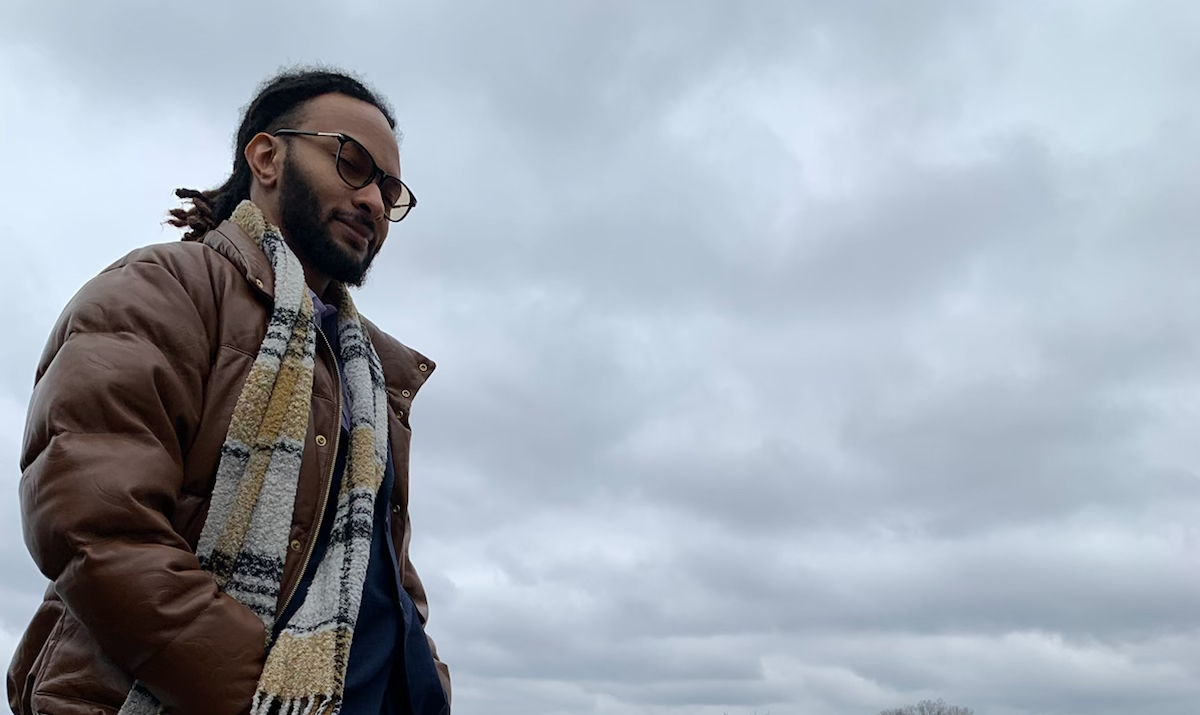Keep Your Eye On the Prize, Stay Healthy, and Trust the Process: a Brandeis Alum’s Philosophy on Philosophy

June 29, 2022
Sydney Adams | Graduate School of Arts and Sciences
For Corey Beckford MA ’21 a journey into philosophy started with the study of neuroscience. “After all, the brain is said to hold some of the greatest secrets about human existence, so why not study the brain?” he asks. However, after taking a number of courses while earning his BA at Lake Forest College, Beckford realized that his ultimate passion was in philosophy. Before diving head first into a doctoral program, Beckford wanted to spend, “more time learning about different areas of philosophy such as philosophy of mind, philosophy math, and philosophy of perception, and an in-depth experience of professional philosophy,” which is how he found his way to Brandeis’ Master’s in Philosophy program. Beckford says he chose the Philosophy program at Brandeis for the diversity of courses, the location, and the surrounding academic community. Beckford makes clear that he made his decision not because of “technical things” but because Brandeis resides in an “intellectual hub for philosophy.”
One of Beckford’s favorite parts of the MA program was the course offerings, not only was he able to continue to learn about his interests in German philosophy and critical philosophy of race and racism, but he was also able to learn about “philosophy of math, philosophy of death, German, and Black Political Thought in the politics department.” Furthermore, the Philosophy department supported Beckford's interests even more by offering him the opportunity to heightened his expertise in German philosophy by learning the German language. Beckford says, “language learning is a life-long process, but had I not started when I did, I do not think I would have had as rich and nuanced an education in philosophy at Brandeis as I did.” Ultimately, Beckford credits his unique and tailored experience to the “receptive, communicative, and reliable” faculty at Brandeis.
Beckford says that the relationships he built in the philosophy department were instrumental to him continuing his education at the City University of New York (CUNY) Graduate Center as a PhD candidate. He laudes professors: Kate Moran, Marion Smiley, and Umrao Sethi who assisted and supported him during his time at Brandeis. He says these professors specifically, “helped me hone my networking skills, sharpen my writing, and think more professionally about my future in philosophy.” Beckford also says he is “indebted” to professors Eugene Sheppard and Eva Heinrich, as well as the Philosophy department’s administrator, Julie Seeger. Of his time with Professor Sheppard, Beckford says he “helped me continue my studies in German philosophy, and in general was always friendly, welcoming, and great to discuss philosophy with.” On the language learning side of his education, Beckford says Professor Heinrich, “made learning German exciting and always encouraged me to keep practicing my German even if it felt overwhelming at times.” And Beckford speaks highly of Julie Seeger, saying she “made me feel at home almost immediately when I arrived in Waltham. I did not have many friends when I first arrived, and struggled a little getting the hang of my schedule. However, Julie was welcoming from the start, cheerful, and a compassionate human being.”
Beckford’s community experience at Brandeis prompted him to continue his study of philosophy at CUNY Graduate Center (GC) where he was recently able to deliver a talk at the Eastern American Philosophical Association (APA) 2022 conference on “the connection between Kant’s theory of race, and his empirical psychology,” he says, “I investigated how Kant’s theory of race informs his understanding of the psychological capacities required for possessing a moral character and attitude.” While he is discovering new pathways in philosophy, Beckford says, “Brandeis helped prepare me for my studies at the CUNY GC by providing excellent course offerings, and faculty immersed in the world of professional philosophy.” Beckford has two upcoming projects titled, “Beautiful Chaos: Using Stand-up Comedy to Resolve the Debate about Negro Art”, and “A Kantian Account of Aesthetic Environmental Appreciation” that will be feautured at the Eastern APA conference in Montreal next year.
As for advice for students interested in pursuing a degree from Brandeis’ Philosophy program, Beckford suggests, “My main advice to students interested in pursuing a degree from Brandeis’ Philosophy Program is threefold: One, keep your eye on the prize—it can be fun exploring new areas of philosophy, but it’s important to stay focused on producing a strong writing sample, and developing strong, lasting connections with your faculty; Two, stay healthy—self-care is crucial to maintaining a positive mind-set; Three, trust the process!”
To learn more about Corey and follow his work visit his website.






